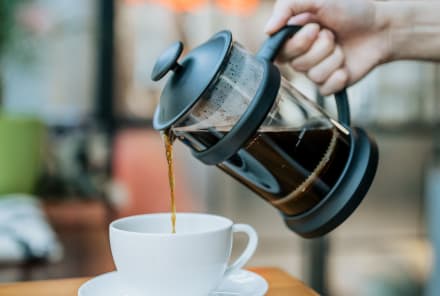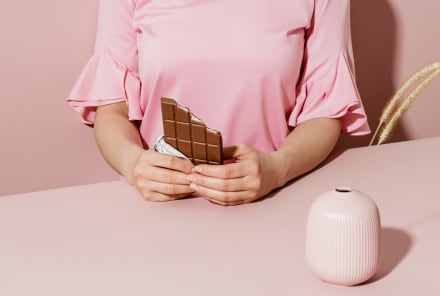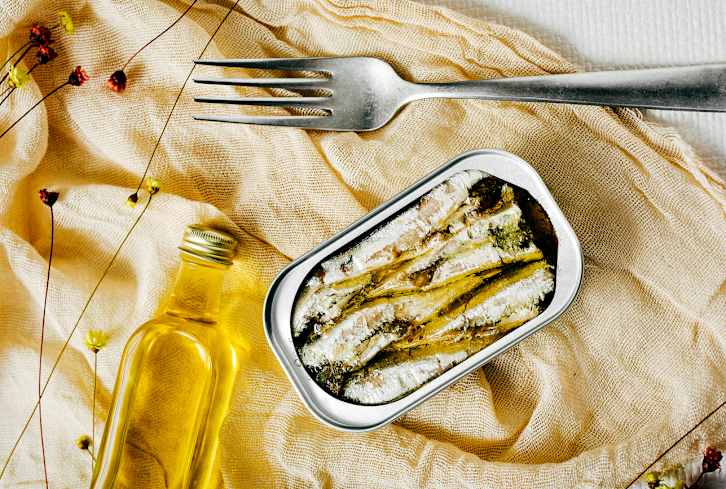Advertisement
Is Ingesting Essential Oils Safe — Or Dangerous?


A topic of hot debate both in and out of essential oil circles is the controversy over ingestion. Everyone has an opinion about whether or not it's safe. But is it really? As a chiropractic doctor with a background in biochemistry and certifications in nutrition and aromatherapy, I've rounded up the science on the subject. Here's what you need to know.
Here's what the research says about ingesting essential oils.
Because most of the research has been done on animals rather than humans, the science isn't definitive on ingesting essential oils. What we do know is that ingesting essential oils should be done in a vegetable capsule or gelatin capsule in order to prevent irritation of the digestive lining. Many people argue that irritation of the mucosa—or the coating that protects our internal digestive tract—will get damaged when ingesting essential oils, but we're not entirely sure. Because the nerve endings are closer to the surface in mucosa than they are in the skin, reactions may be stronger and faster, which can be both a benefit if you want quick results or a curse if you've used an oil that you shouldn't have. The good news is that the mucosa is inherently protective, continuously secreting more mucus to coat these sensitive areas and quickly diluting the essential oils. While the initial sensation may be stronger than applying oils topically to the skin, the dilution rate happens faster due to the constant production of mucus, leading to longer effects.
The do's and don'ts of ingesting essential oils.
The simple answer is yes, you can eat certain essential oils. In fact, you probably already have. When we consider what essential oils are—volatile aromatic compounds extracted from plants—we begin to understand that when we eat certain plants, we have inherently ingested its essential oils. Would you think twice about some fresh cilantro in your salsa or basil on your pizza? Probably not. In fact, the food and beverage industry has been using essential oils to flavor and preserve foods for years, so you've probably already ingested them in a wide range of products. I would rather ingest these natural compounds than any synthetic flavorings often put in our foods and drinks. The question then becomes one of potency, quantity, and quality:
1. Do: Pay attention to potency.
Since the essential oil of a plant as a whole consists of only 1 to 5% of its total composition, eating the raw plant material is not the same as taking a drop of essential oil internally. High-quality essential oils are 50 to 70% more potent than their herbal counterparts, which must be taken into consideration before ingesting. For example, it takes approximately 50 lemons to make one 15-mL bottle of lemon essential oil. If you break that down mathematically, with each 15-mL bottle containing approximately 250 drops, we could reason that each drop of essential oil took approximately ⅕ of a lemon rind to produce. Would we think twice about eating ⅕ of a lemon rind? That depends on the person, but generally no. We wouldn't. And we've probably all had a lemony dessert with lemon zest on it.
2. Do: Look out for markers of quality.
Then you have to consider the quality of the essential oil that you are ingesting. With many lesser-quality oils being tainted with solvents, additives, and other substances to dilute their potency to offer a cheaper alternative for the general public, we start wading into dangerous waters. If you don't know what's in your bottle of EO, don't consider ingesting it. Even oils that claim to be 100% pure could be made from plants grown with pesticides, harvested at the wrong time, grown in a laboratory, or distilled with improper techniques. With little governmental regulation for essential oil quality or production, some of the top oil companies have taken matters into their own hands and set their own safety and quality standards. Only the highest quality of pure, unadulterated essential oils should even be considered when it comes to ingestion.
Not all essential oils are created equal. And herein lies the danger because many people assume there is a yes-or-no side of this debate to fall on, making all safe to ingest or all unsafe. This is why having knowledge of essential oils and their components as well as seeking the advice of a trusted health care professional is paramount. In general, the FDA has approved a list of essential oils that are considered GRAS, or "generally recognized as safe." The problem lies in the assumptions surrounding this list, because there are different species of essential oils that are safe and others that haven't been verified under the umbrella of a single common name. And even then, not all approved oils are safe for every individual, depending on your personal health history.
3. Don't: Ingest too much at once.
If you do find an oil that is safe for ingestion, I would still proceed with caution. Each person reacts differently to the substances that they consume, so caution should always be practiced whenever trying something new—whether it's a new food, workout, or a new medication. "One drop at a time" is the best advice I can give you, especially when it comes to ingestion.
The essential oils you should NEVER ingest.
There are also quite a few essential oils that are not recommended for ingestion, as well as those that you absolutely should NEVER ingest. Some of these include:
- Arborvitae
- Birch
- Cedarwood
- Cypress
- Eucalyptus
- White Fir
- Wintergreen
This has led essential oil companies to label their bottles with markers indicating usage—whether aromatic, topical, or internal. Some are even produced with child-safe lids because they aren't even for topical or aromatic use for children, like wintergreen. If you have a bottle of essential oil that doesn't list the proper method of use, then this company isn't taking into consideration the health and welfare of its users.
When you consider the age of the person ingesting essential oils, we add another layer to the debate. Should children be ingesting essential oils? What about teenagers? Can any adult ingest essential oils? There is no one solid answer to these questions. I would not personally recommend that young children ingest essential oils under any circumstances directly from the bottle or even in a veggie or gel capsule, but vitamins made with the essential oils or foods cooked with them would be a different consideration.
This is when ingesting essential oils can be beneficial.
Many cultures have been using herbs and oils to treat their illnesses for thousands of years and continue to do so, prompting further investigation into essential oil usage in our Western culture. More and more research continues to be done on the ingestion of essential oils for medical issues, including nanoemulsions1, in which essential oils are mixed with water to create a more effective delivery method for internal usage.
The research has shown2 ingestion to be particularly useful in situations where digestive distress exists, such as using peppermint essential oil to alleviate the symptoms of irritable bowel syndrome, even going so far as to say it would be the best treatment available when considering side effects of other prescription treatments. In addition, bitter orange oil with its high limonene content has been studied3 for its effectiveness for healing gastric damage4. If you aren't dealing with digestive issues, however, the research isn't as clear.
There isn't a right answer to this question because it is an individual decision based on each person's unique body chemistry, health history, and the purpose for which he or she is considering using the oils internally. As the body of research continues to grow, we continue to discover more pros and cons of ingesting essential oils.
The bottom line? There's an essential oil application that works for you.
The facts laid out, ingesting oil clearly is a personal decision that must be made with a trusted health care professional, but you shouldn't have to ingest essential oils if you are not comfortable. As an essential oil expert, if I know one thing for sure, it is that there's never just one way to use essential oils. Aromatic and topical application still prove to be the most well-researched and effective methods for using high-quality essential oils. Simply inhaling the aroma of essential oils puts them right to work in our body, moving into the olfactory lobe and triggering the limbic system into action. Topical application takes a little bit longer to get to work, with factors such as temperature, dilution, and area of application all playing a role. But within about 15 minutes, essential oils are in your bloodstream and working their magic.
So while you can ingest essential oils when necessary and done correctly, you simply don't have to when there are other effective methods available.



















